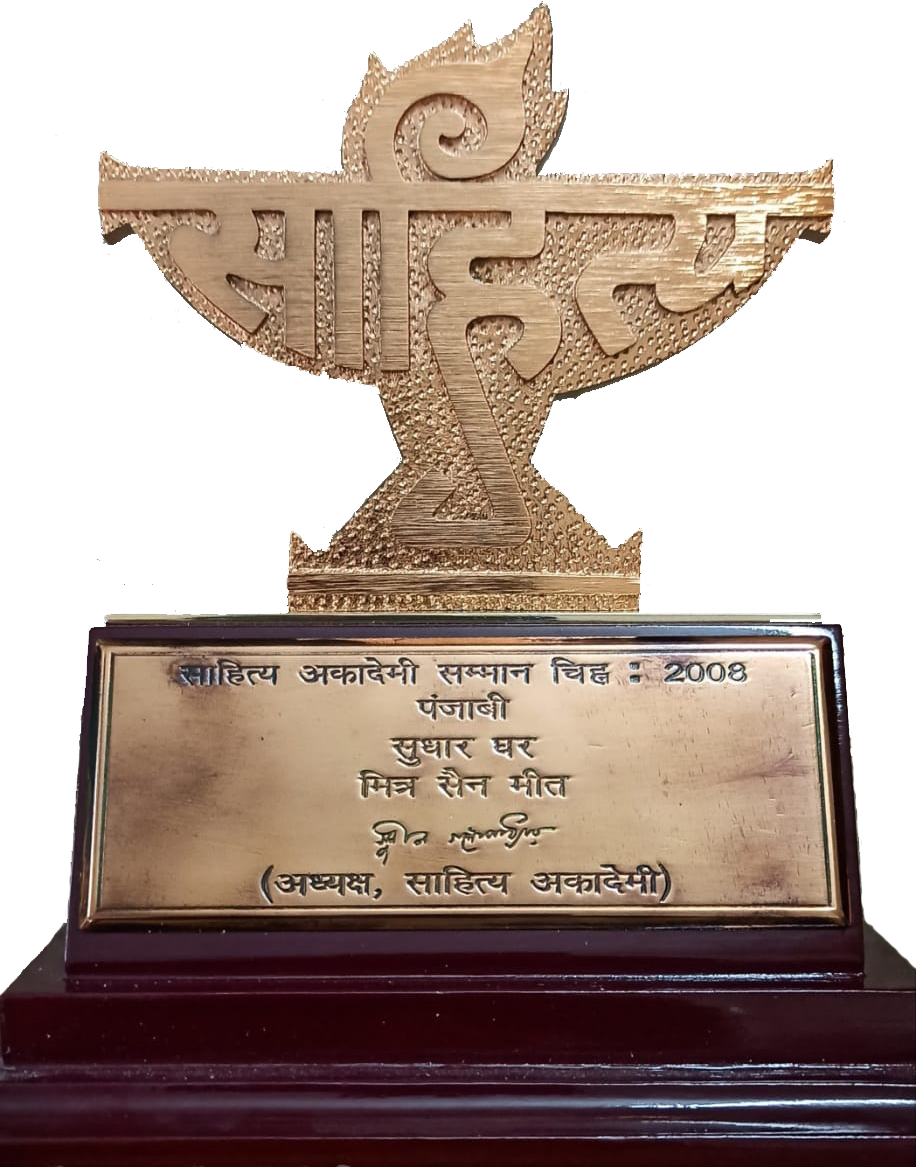ਧੋਖਾ-ਧੜੀ ਅਤੇ ਜਾਅਲੀ ਦਸਤਾਵੇਜ਼ ਤਿਆਰ ਕਰਨਾ (Cheating and forgery of documents)
(Sections 415, 463, 464 and 466 IPC)
ਧੋਖਾ-ਧੜੀ
ਓਪਰੀ ਨਜ਼ਰੇ ਵਪਾਰਿਕ ਜਾਂ ਪੈਸੇ ਦੇ ਲੈਣ-ਦੇਣ ਸਬੰਧੀ ਹੋਣ ਵਾਲੇ ਕਾਰ-ਵਿਹਾਰ ਭਾਵੇਂ ਨਿਰੋਲ ਦੀਵਾਨੀ ਨਜ਼ਰ ਆਉਂਦੇ ਹਨ ਪਰ ਉਨ੍ਹਾਂ ਵਿਚ ਧੋਖਾ-ਧੜੀ ਦਾ ਅੰਸ਼ ਵੀ ਹੁੰਦਾ ਹੈ।
(ੳ) ਵਪਾਰਿਕ (commercial) ਅਤੇ ਪੈਸੇ ਧੇਲੇ (money) ਦੇ ਕਾਰੋਬਾਰ/ਕਾਰ-ਵਿਹਾਰ (transactions) ਵਿੱਚ ਕੁਝ ਅੰਸ਼ ਧੋਖਾ-ਧੜੀ ਦਾ ਵੀ ਸ਼ਾਮਿਲ ਹੁੰਦਾ ਹੈ।
Case : Rajesh Bajaj vs. State (NCT of Delhi) 1999 Cri. L.J.1833 (SC)
Para 10 “It may be that the facts narrated in the present complaint would as well reveal a commercial transaction or money transaction. But that is hardly a reason for holding that the offence of cheating would elude from such a transaction. In fact, many a cheatings were committed in the course of commercial and also money transactions. One of the illustrations set out under Section 415 of the Indian Penal Code (Illustrations ‘f’) is worthy of notice now :
(f) A intentionally deceives Z into a belief that A means to repay any money that Z may lend to him and thereby dishonestly induces Z to lend him money, A not intending to repay it.
(ਅ) ਦੋਸ਼ੀ ਦੀ ਨੀਅਤ ਮਹੱਤਵਪੂਰਨ ਹੈ, ਨਾ ਕਿ ਕਾਰੋਬਾਰ/ਕਾਰ ਵਿਹਾਰ ਦੀ ਕਿਸਮ (nature of transaction)
Case : Rajesh Bajaj vs. State (NCT of Delhi) 1999 Cri. L.J.1833
Para 11 “The crux of the postulate is the intention of the person who induces the victim of his representation and not the nature of the transaction which would become decisive in discerning whether there was commission of offence or not.”
ਜਾਅਲੀ ਦਸਤਾਵੇਜ਼
(ੳ) ਸ਼ਬਦ ਜਾਲਸਾਜ਼ੀ ਦੀ ਉਦਾਰ ਵਿਆਖਿਆ
ਜਾਅਲੀ ਦਸਤਾਵੇਜ਼ ਤੋਂ ਲਾਭ ਉਠਾਉਣ ਨੂੰ ਜਾਲਸਾਜ਼ੀ (fraud) ਮੰਨਿਆ ਜਾਂਦਾ ਹੈ।
Case : State of U.P. vs. Ranjit Singh 1999 Cri. L.J.1830
Para 3 “Where, therefore, a document is prepared with the intention to deceive and by means of deceit, an advantage is obtained then there is a fraud.”
ਜਾਅਲੀ ਦਸਤਾਵੇਜ਼ ਸ਼ਬਦ/ਟਰਮ ਦੀ ਉਦਾਰ ਵਿਆਖਿਆ
(ੳ) ਅਦਾਲਤ ਦਾ ਰਿਕਾਰਡ ਜਾਂ ਕਾਰਵਾਈ ਵੀ ਦਸਤਾਵੇਜ਼ ਦੀ ਪਰਿਭਾਸ਼ਾ ਵਿੱਚ ਆਉਂਦਾ ਹੈ।
Case : State of U.P. vs. Ranjit Singh 1999 Cri. L.J.1830 (SC)
Para 3 “It would be seen from Section 466 of the Indian Penal Code that whoever forges a document, purporting to be a record or proceeding of or in a Court of Justice commits the offence”.
(ਅ) ਕਿਸੇ ਦੋਸ਼ੀ ਨੂੰ ਜ਼ਮਾਨਤ ਉੱਤੇ ਰਿਹਾ ਕਰਾਉਣ ਦੀ ਨੀਅਤ ਨਾਲ ਤਿਆਰ ਕੀਤੇ ਗਏ ਰਿਕਾਰਡ ਨੂੰ ਬਦਨੀਅਤੀ ਨਾਲ ਤਿਆਰ ਕੀਤਾ ਗਿਆ ਜਾਅਲੀ ਰਿਕਾਰਡ ਮੰਨਿਆ ਜਾਂਦਾ ਹੈ। ਅਜਿਹੇ ਦਸਤਾਵੇਜ਼ ਨੂੰ ਤਿਆਰ ਕਰਨਾ, ਜਿਸ ਨਾਲ ਦੋਸ਼ੀ ਨੂੰ ਜ਼ਮਾਨਤ ਉੱਤੇ ਰਿਹਾ ਹੋਣ ਦਾ ਅਧਿਕਾਰ ਮਿਲਦਾ ਹੋਵੇ, ਨੂੰ ਆਮ ਜਨਤਾ ਨੂੰ ਨੁਕਸਾਨ ਪਹੁੰਚਾਉਣਾ (injury and damage to the public) ਮੰਨਿਆ ਜਾਂਦਾ ਹੈ।
Case : State of U.P. vs. Ranjit Singh 1999 Cri. L.J.1830
Para 3 “In view of the conclusion of the Courts below that the accused-respondent did write the bail order in his own handwriting, even though the learned Judge did not pass any bail order, the conclusion is irresistible that the accused-respondent made a false document, as a result of which a person not entitled to be released on bail could make himself free from custody. The question, therefore, is whether under such circumstances it can be held that the accused-respondent made a false document either dishonestly or fraudulently. The expression ‘wrongful’ in Section 23 of the Act means prejudicially affecting a party in some legal right. The words ‘gaining wrongfully’ or ‘losing wrongfully’ need not be confined only to the acquisition or to the actual deprivation of property. In this view of the matter if by virtue of preparing a false document purporting it to be a document of a Court of justice and by virtue of such document a person who is not entitled to be released on bail could be released then, undoubtedly damage or injury has been caused to the public at large and, therefore, there is no reason why under such circumstances the accused who is the author of such forged document cannot be said to have committed offence under Section 466 of the Indian Penal Code.”
(ੲ) ਪਹਿਲਾਂ ਹੀ ਤਿਆਰ ਹੋ ਚੁੱਕੇ ਜਾਅਲੀ ਦਸਤਾਵੇਜ਼ ਉੱਪਰ ਹੋਰ ਜਾਅਲੀ ਦਸਤਖਤਾਂ ਦਾ ਹੋਣਾ ਜ਼ਰੂਰੀ ਨਹੀਂ ਹੈ।
Case : State of U.P. vs. Ranjit Singh 1999 Cri. L.J.1830
Para 3 “The reasoning of the High Court, therefore, that the bail order without the signature cannot be said to be a document thereby not attracting the provisions of Section 464 of the Indian Penal Code is wholly unsustainable.”







More Stories
ਜ਼ੁਰਮ ਵਿਚ ਲੁਕਵੀਂ ਹਿੱਸੇਦਾਰੀ ਦੀ ਸਜ਼ਾ /Constructive criminal liability
ਅੰਧਾ-ਧੁੰਦ ਅਤੇ ਅਣਗਹਿਲੀ/ਲਾਪਰਵਾਹੀ ਨਾਲ ਕੀਤਾ ਕਾਰਜ /Rash and negligent driving
ਮਰਜ਼ੀ ਨਾਲ ਸੱਟਾਂ ਮਾਰਨ ਵਾਲੇ ਜ਼ੁਰਮ /Voluntarily causing hur